
The Clean “Mister Pop”
In the second half of their third act, The Clean seemed increasingly disinterested in both their legacy and their future. Their first three albums—“Vehicle,” “Modern Rock” and “Unknown Country”—did not suffer from from this malaise. But “Getaway,” their fourth, was a minor backslide. And then came “Mister Pop,” their fifth and (now) final release, which sounded less like an album and more like a collection of lightly polished demos. For many years “Mister Pop” felt like a footnote in the band’s tiny but seismic discography. However, by 2023, after the death of Hamish Kilgour, it felt like a swan song.

Jeff Kent “The Enemy of Your Enemy”
In the winter of 1996, having already been traded twice in his young career, Jeff Kent was traded again—this time to The San Francisco Giants, where he both blossomed and soured. Alongside the Barry Bonds—the slugging, running, intentionally walking, video game centerpiece of the club—Kent helped lead the team to six straight winning seasons. Moreover, while in The Bay, Kent averaged thirty home runs with a hundred RBIs and a .300 average year in and out. And yet, to this day, Jeff Kent is perhaps less remembered for his offensive prowess than as Barry Bonds’ most offensive antagonist.
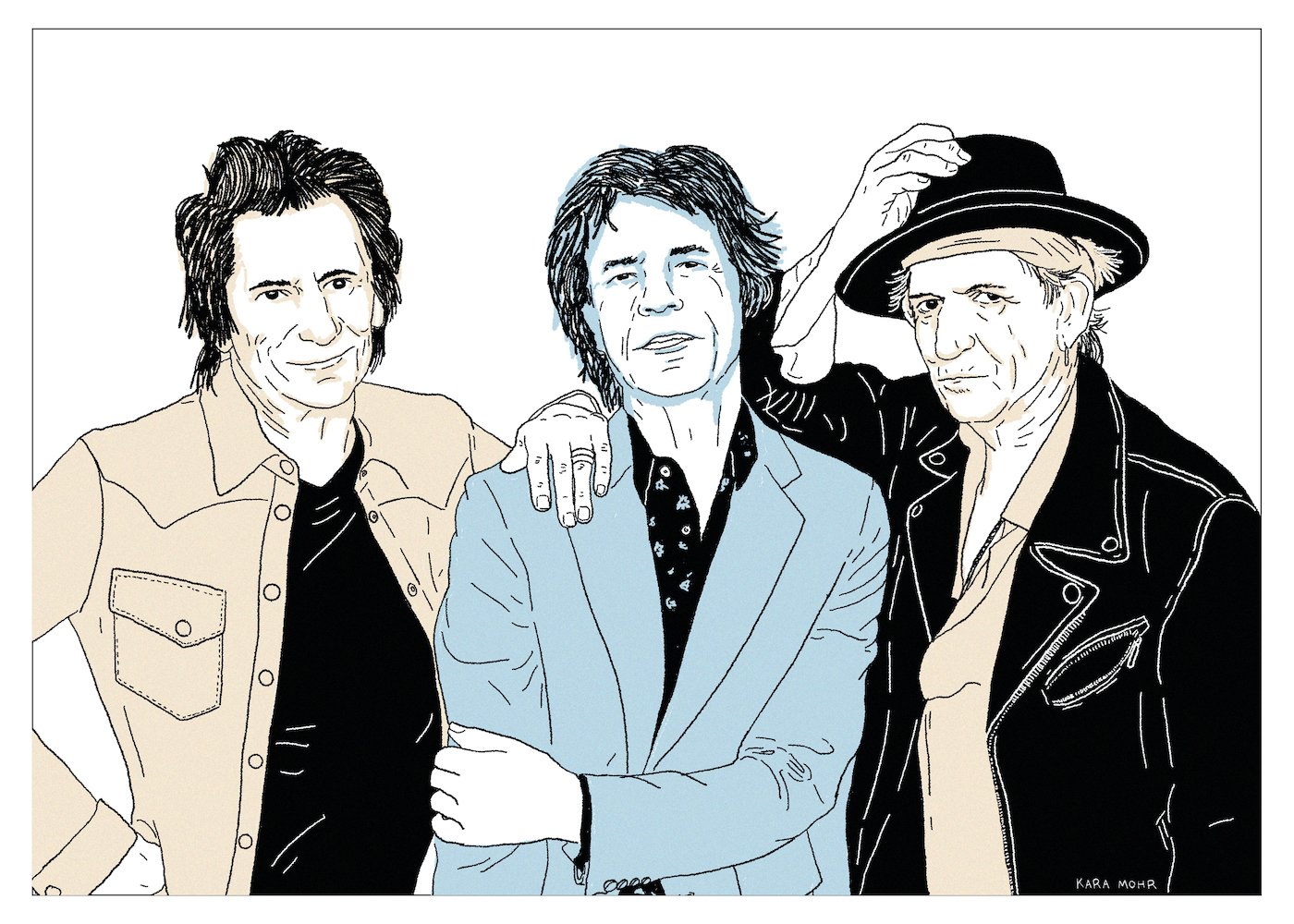
The Rolling Stones “Hackney Diamonds”
ChatGPT—can you make a song that sounds like “Start Me Up,” but a little faster? OK, thanks. ChatGPT—can you make it a little more Pop? ChatGPT—a little faster please. Can you also make Mick sound like he’s thirty? No—too young. How about forty-five? OK—great. Now — can bring the vocals up & make the beat snap more? Can you isolate Keith’s guitar & raise it up a bit? And can you clip all the highs & lows from the mix? OK, perfect. Now ChatGPT—can you find something Country-ish from “Some Girls” & do the same thing? Then just keep going & let know when you’re finished. Thank you ChatGPT.
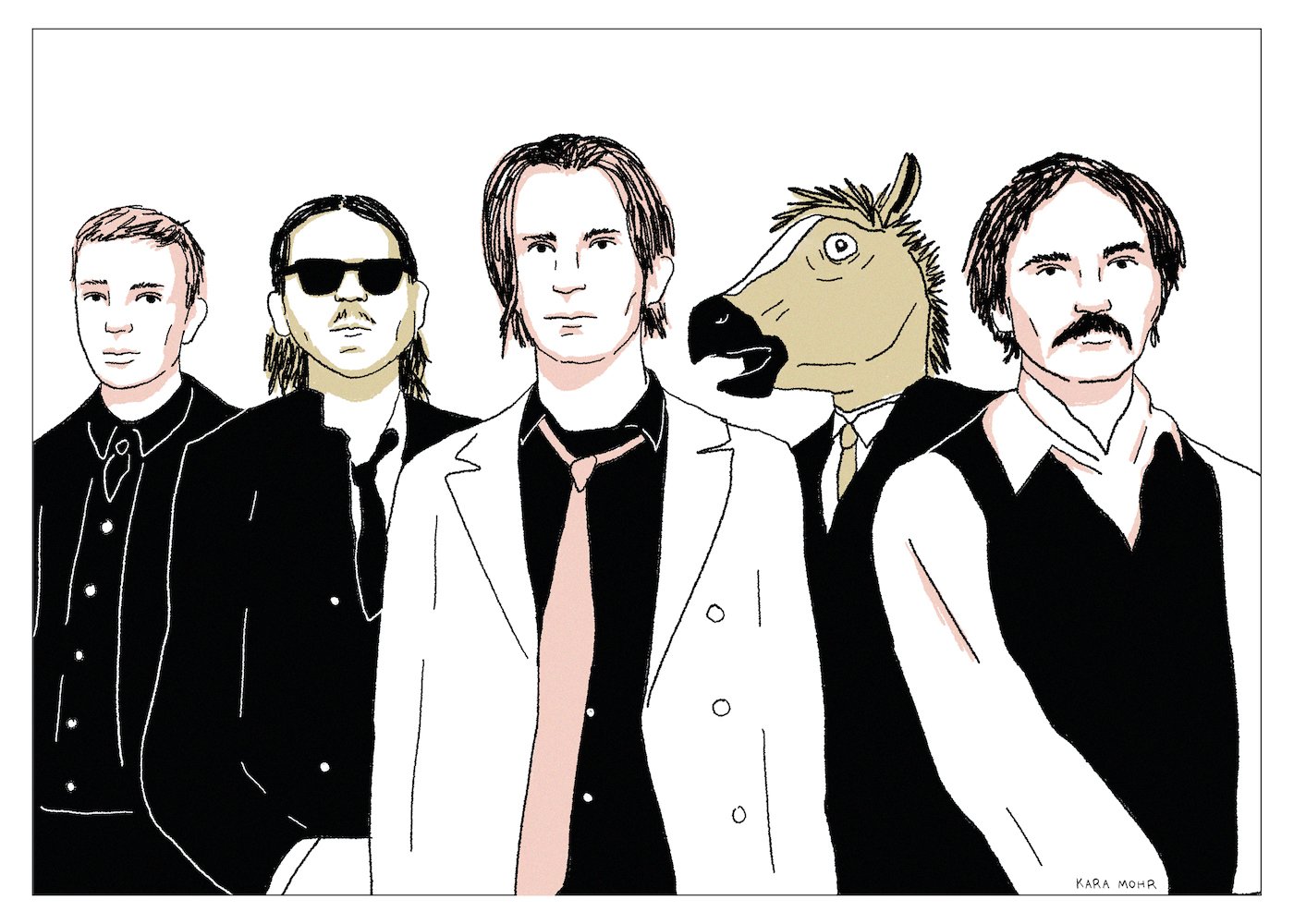
The Black Heart Procession “Six”
If Hot Snakes embodied the face of post-Hardcore San Diego—molten & unrelenting—Black Heart were the underside—dusky & longing. Pall Jenkins & Tobias Nathaniel made aching nocturnes—hardly Rock songs—better suited for Victorian lockets than iPods or CDs. But after five albums of unopened letters about unrequited loves, “Six” made the turn from noirish black to Hot Topic black. You could read it in the track listing—titles like “Drugs,” “Heaven & Hell” & “Suicide”—and you could see it in the cover design—pagan crosses & “SIX SIX SIX” scrawl. All signs indicated that the carnage was more B-movie horror than emotional distress—that the aesthetic feature had become a shticky bug.
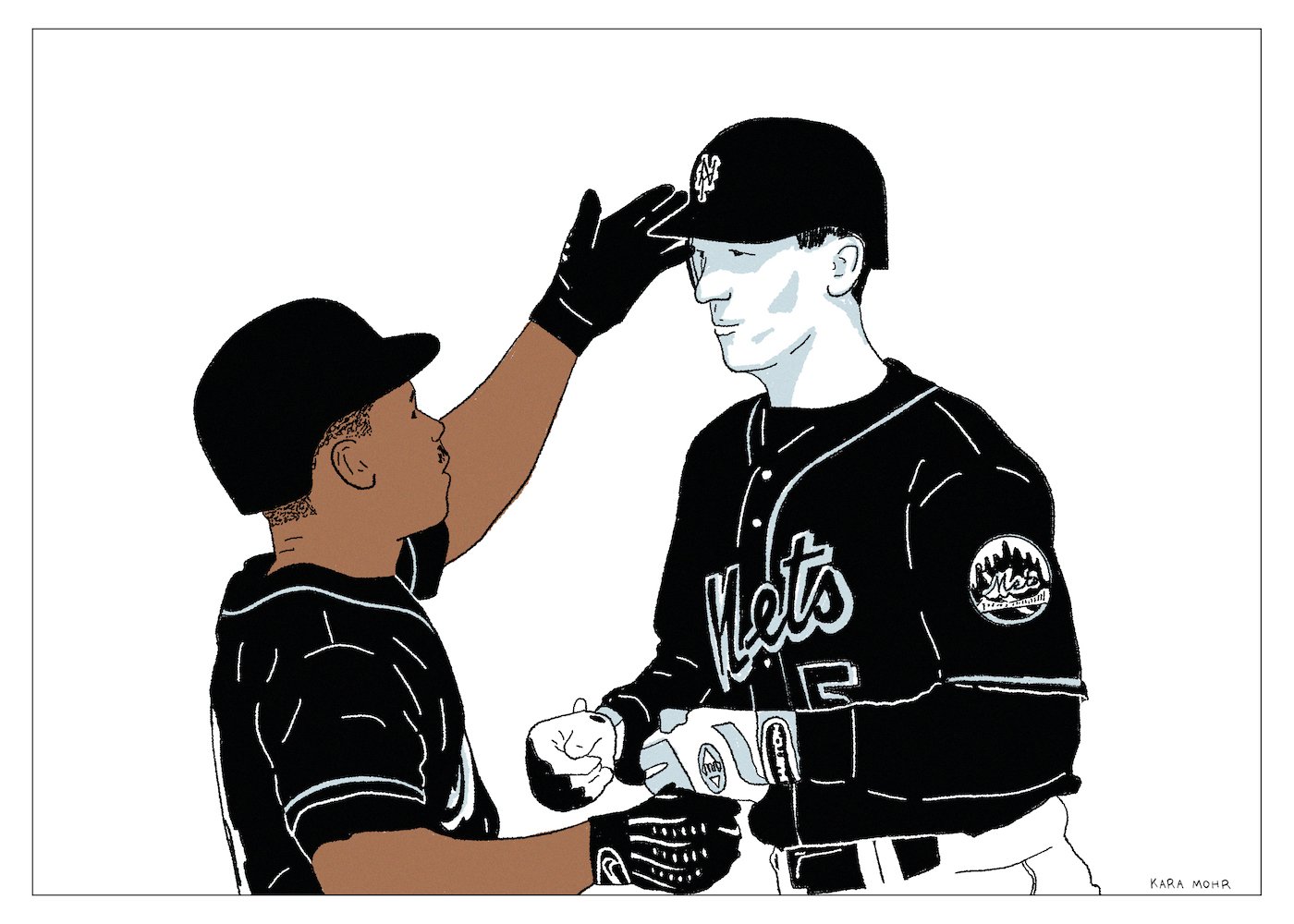
John Olerud “Un-unforgettable”
There are several permutations of the “Rickey and Oly” story, including hysterically far flung versions wherein the latter is basically Jesus. But, regardless of the version, the fundamental premise remains consistent. And as short stories go, this one is a formal marvel. It’s got a great setup and an even better kicker. It’s succinct and hysterically funny. It confirms our assumptions that Rickey Henderson was both extremely perceptive and completely oblivious — that he was operating on a different plane and dimension from “normal” stars. But moreover, it acknowledged the thing that every baseball fan knew to be true but which none would say out loud: that John Olerud is un-unforgettable.
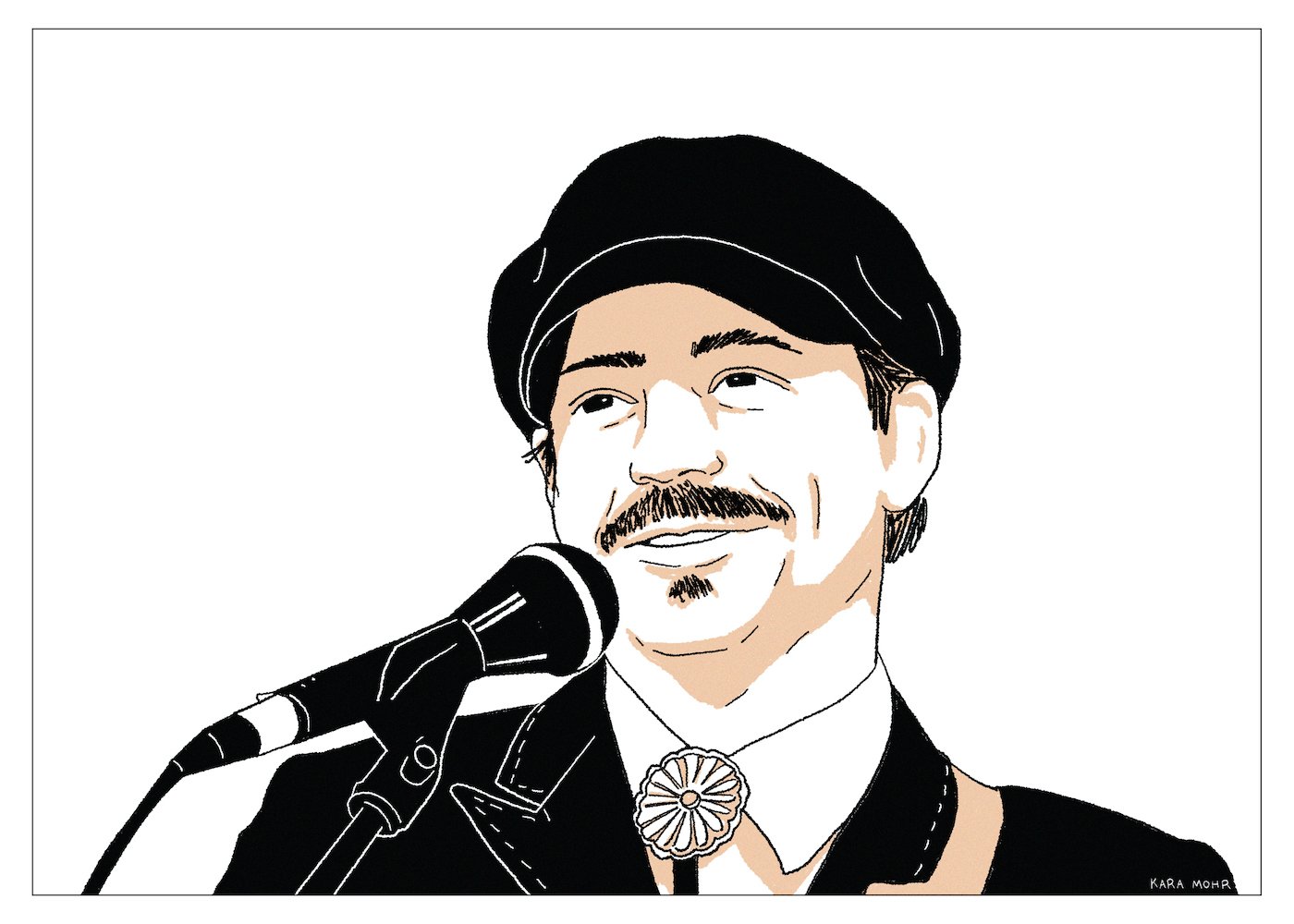
Magnolia Electric Co. “Josephine”
By the time of “Josephine’s” release, Jason Molina was almost completely out of the picture. Those who were still following along understood that while Molina might always be the patron saint of Secretly Canadian Records, Justin Vernon was the prodigal son of the Secretly Canadian Empire. And that while Jason Isbell might have looked upon Molina with reverence, Americana’s new “It Boy” had bested his predecessor in the popularity contest. In 2009 Molina was neither as new as Vernon nor as sociable as Isbell. Meanwhile, reviews of “Josephine” were ambivalent and sales were middling. In the end, Molina’s return proved to be shaky and short lived. Soon after “Josephine” arrived, he cancelled tour plans for “health issues.” And over the next three years, aside from the occasional rumor or warning flare, Jason Molina was basically a living ghost.
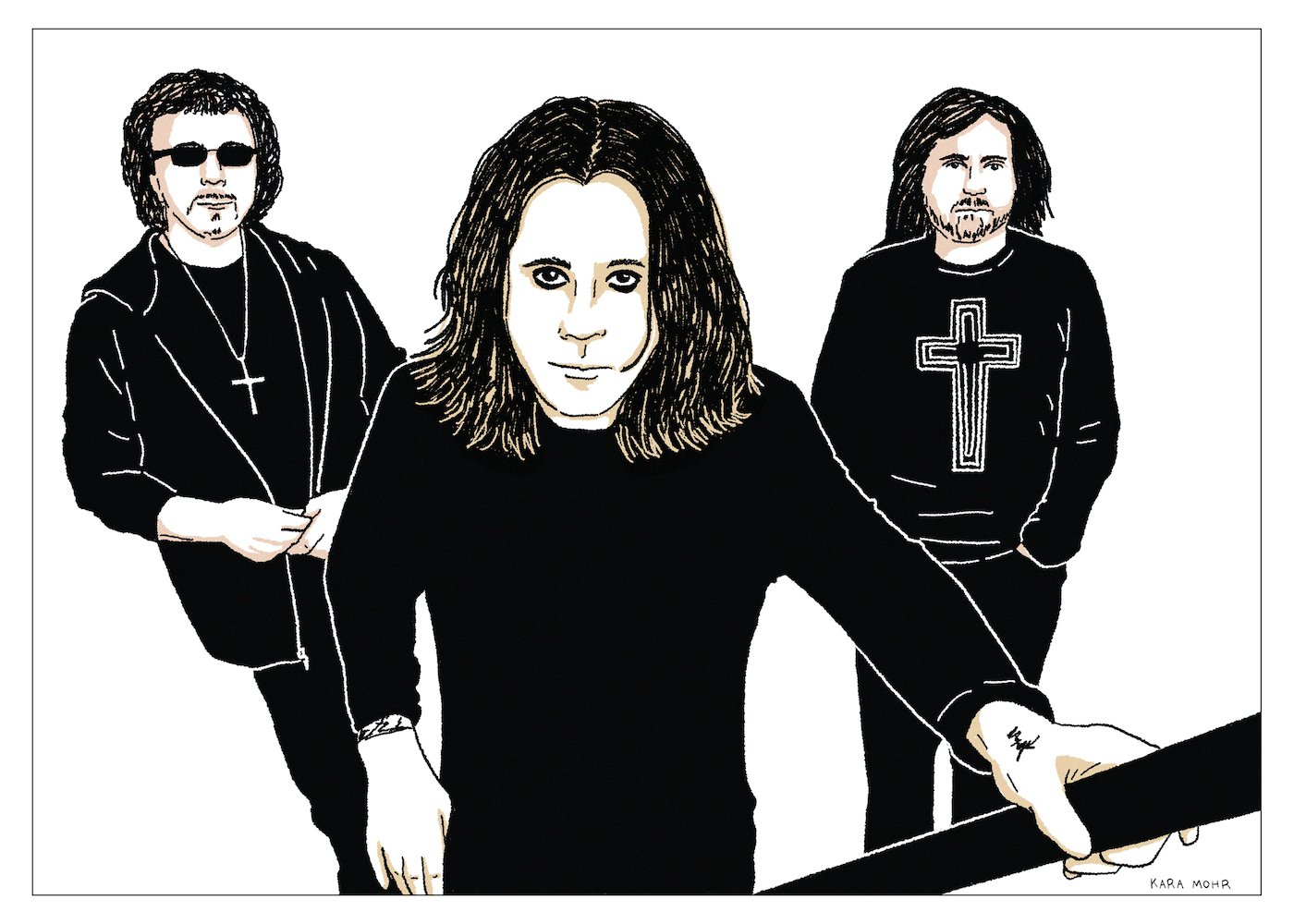
Black Sabbath “13”
Once upon a time, Black Sabbath were considered musical troglodytes — dumb, artless wankers, shunned by the cultural cognoscenti. Years later, even after many fans and some critics came around, they were still treated like drunk, possibly murderous threats. It was not until recently, long after Ozzy left, after Ronnie left, after most of the world had reconsidered them, that Sabbath settled into the realm of quaint, rich celebrity. They came to signify the excess and darkness of Seventies Hard Rock and the eventual convalescence from said excess and darkness. By 2013, Ozzy Osbourne was unimaginably wealthy. He was a reality TV star. He was a doddering, comical old man. And yet, despite the passage of time, despite the reputational rehab and despite Ozzy’s defanging, “13” is not funny — not for a single moment.
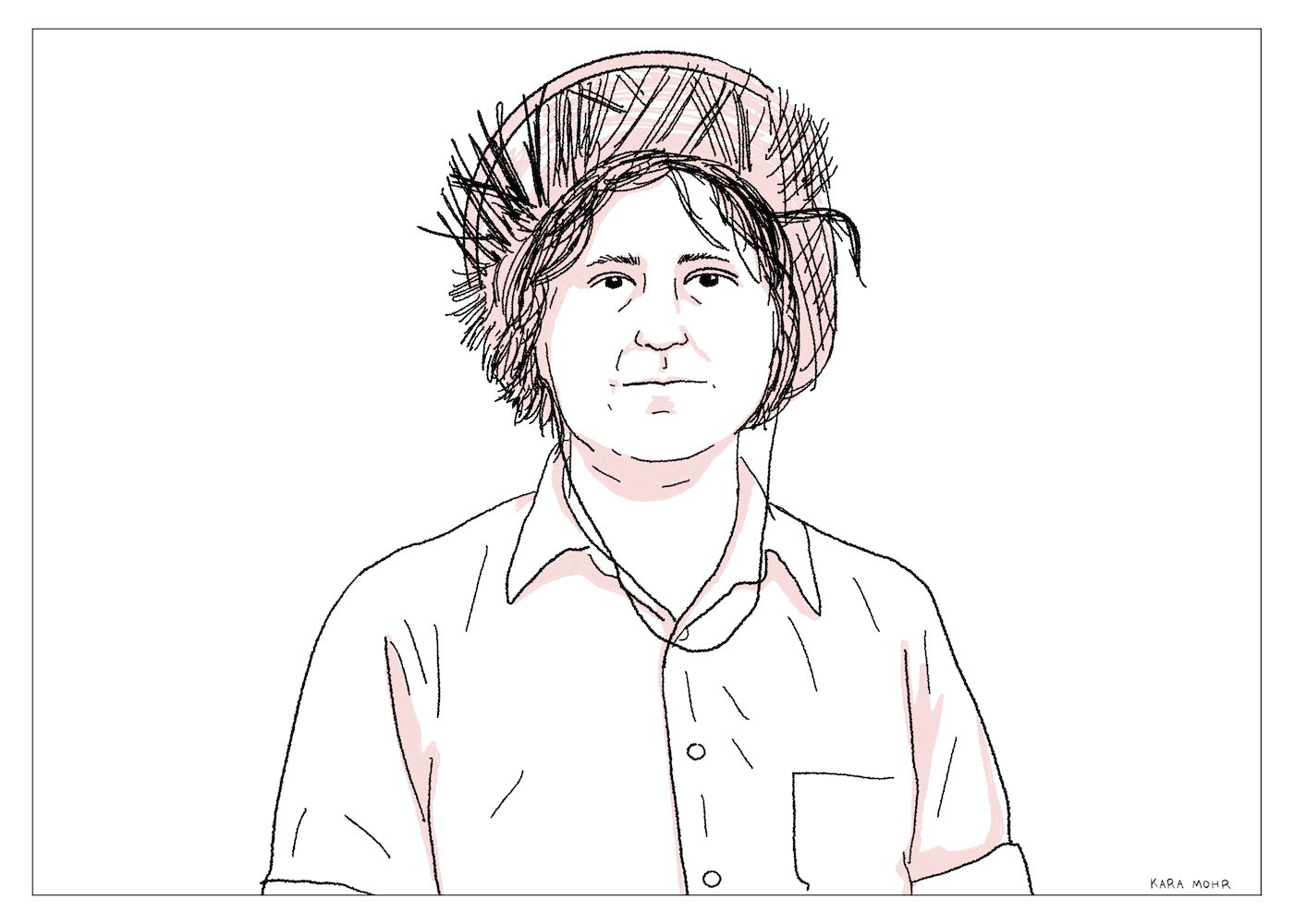
The Olivia Tremor Control “Garden of Light” and “The Same Place”
Whereas Bill Doss was a hard working free spirit, Will Cullen Hart was more of a boundless tinkerer. Doss’ songs have an easy air about them — they feel well-crafted but also kind of effortless. Hart’s songs, on the other hand, sound unlike anything or anyone else. If The Olivia Tremor Control were a miracle, Hart was the miracle worker. And of the many miracles he performed, none were more miraculous than the ones he manifested on November 29, 2024. That day, at the age of fifty-three, he bequeathed us “Garden of Light” and “The Same Place.” The surprise of these two gifts — the first new music from OTC in fifteen years — was all the more mind boggling, though, when you consider what immediately preceded them. Just a few hours earlier, Will Cullen Hart had passed away from natural causes.
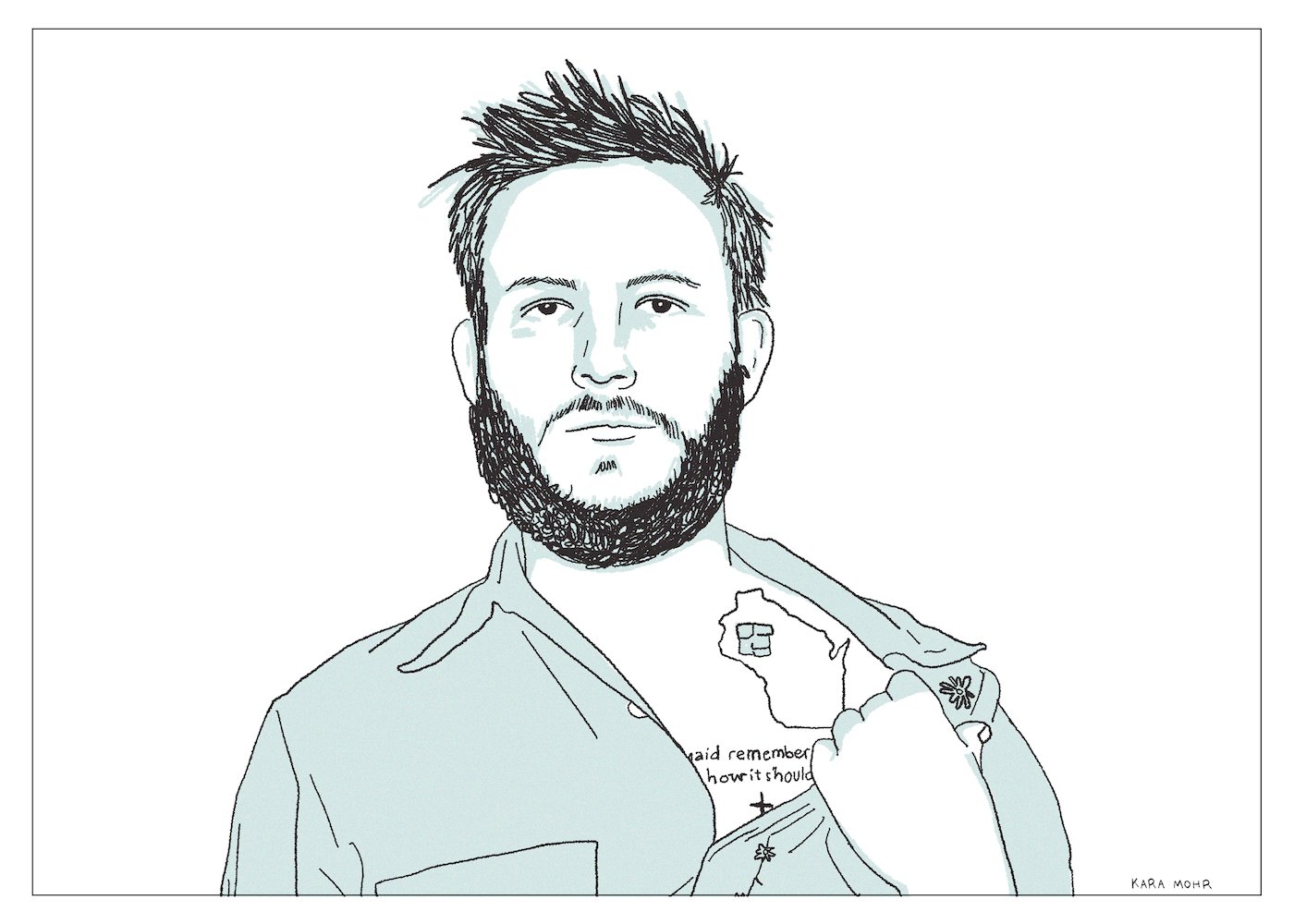
Bon Iver “Sable”
As Bon Iver evolved from loner in the shack to experimental Jam band, Justin Vernon became more diffuse — and more opaque. His voice was everywhere, but his songs were impossible to decipher. His career was simultaneously safe and unpredictable. He was Indie Rock canon verging on Pop canon, but one never knew when or if the next album would come. And one never knew what it might sound like — except that it wouldn’t sound like “For Emma, Forever Ago.” Justin Vernon was not going back.
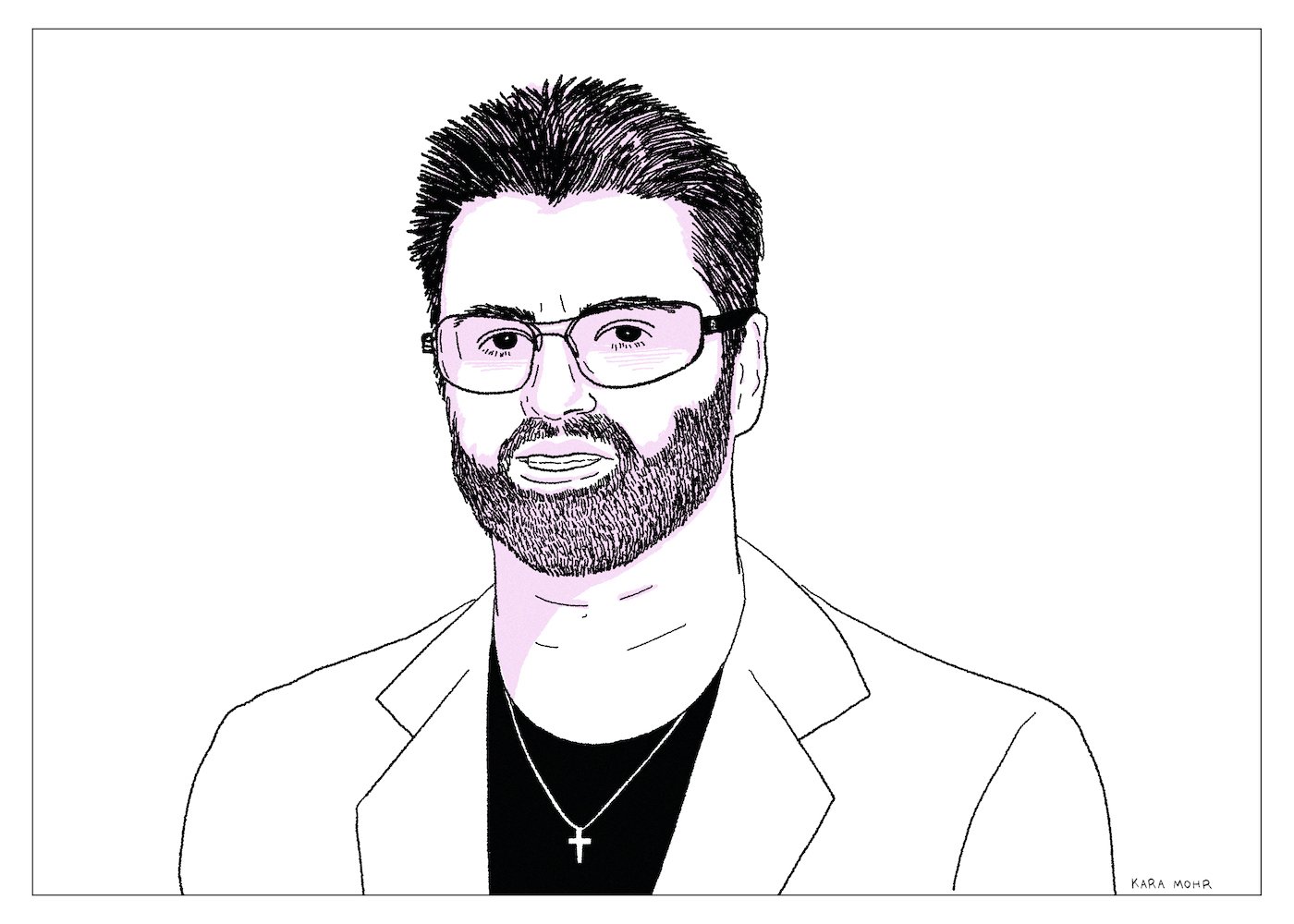
George Michael “Patience”
Eight years removed from his last album of originals — after a very public arrest, after the death of his mother and his partner — George released what would become his swan song. Having lost most of his U.S. fanbase, “Patience” was less a triumphant return and much more an album for aging diehards. Like all George Michael albums, it was an extremely personal one. But, it was also a radically honest album. Prince employed characters and double entendres. Michael Jackson used masks. And Madonna had her costumes. But there was always a sense that George was telling the absolute truth. That what we were hearing was not a “version of George Michael,” but the man himself.
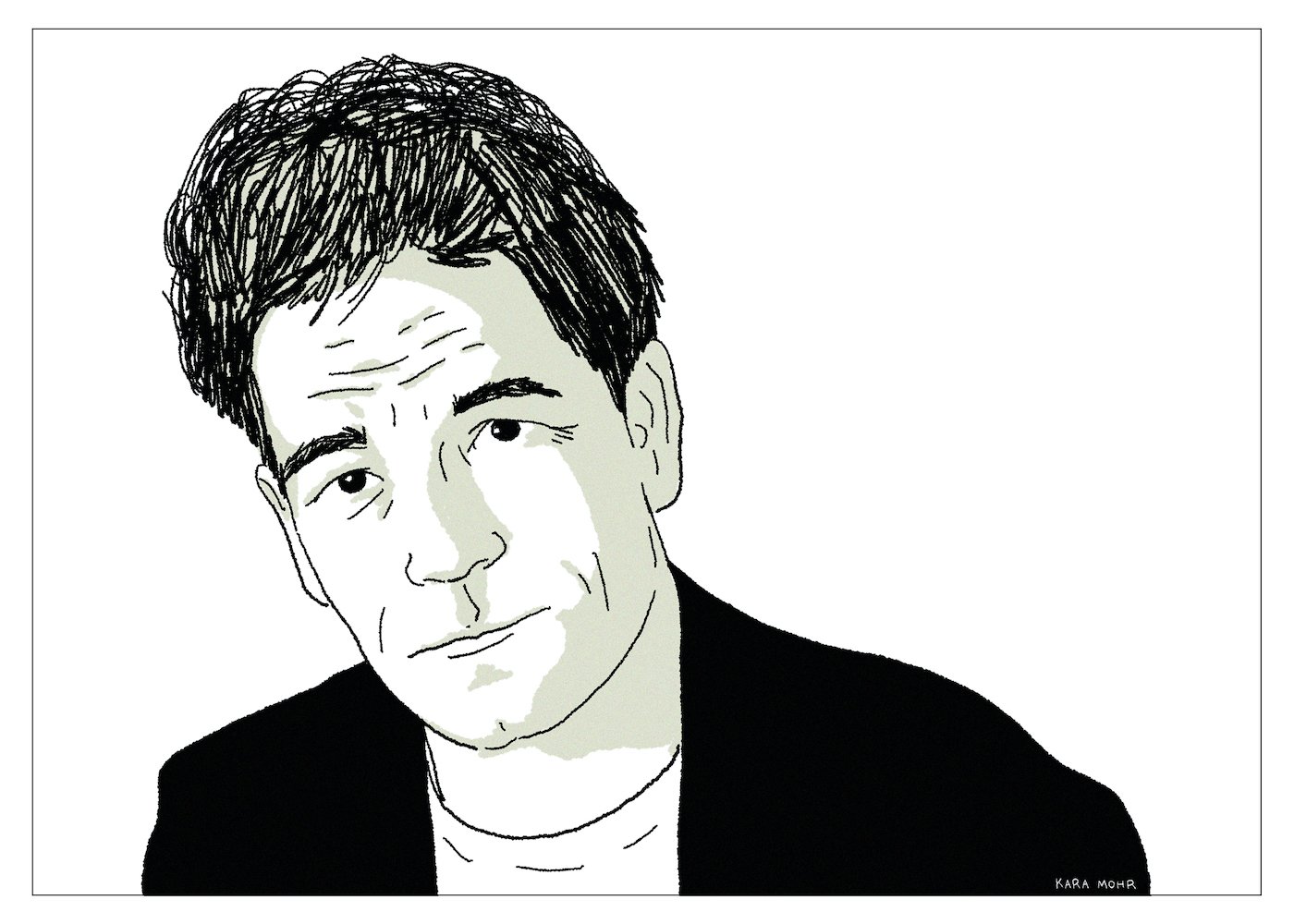
Huey Lewis and The News “Plan B”
The Nineties were a fallow period for Huey Lewis and The News. Following a decade wherein they released nine albums, the band mustered just two over the next ten years. His platinum-selling, chart-topping days were a thing of the past, but his transition from Heartland New Wave to aging Mom-and-Dad-core was both graceful and inevitable. In some ways it made much less sense that Huey Lewis was ever a bonafide Pop star and more sense that he was a charming screen presence who occasionally put out R&B albums. By 2001, at the age of fifty, Huey had finally achieved his pop culture destiny, settling into his rightful place as Bruce Willis’ less theatrically — but much more musically talented — cousin.
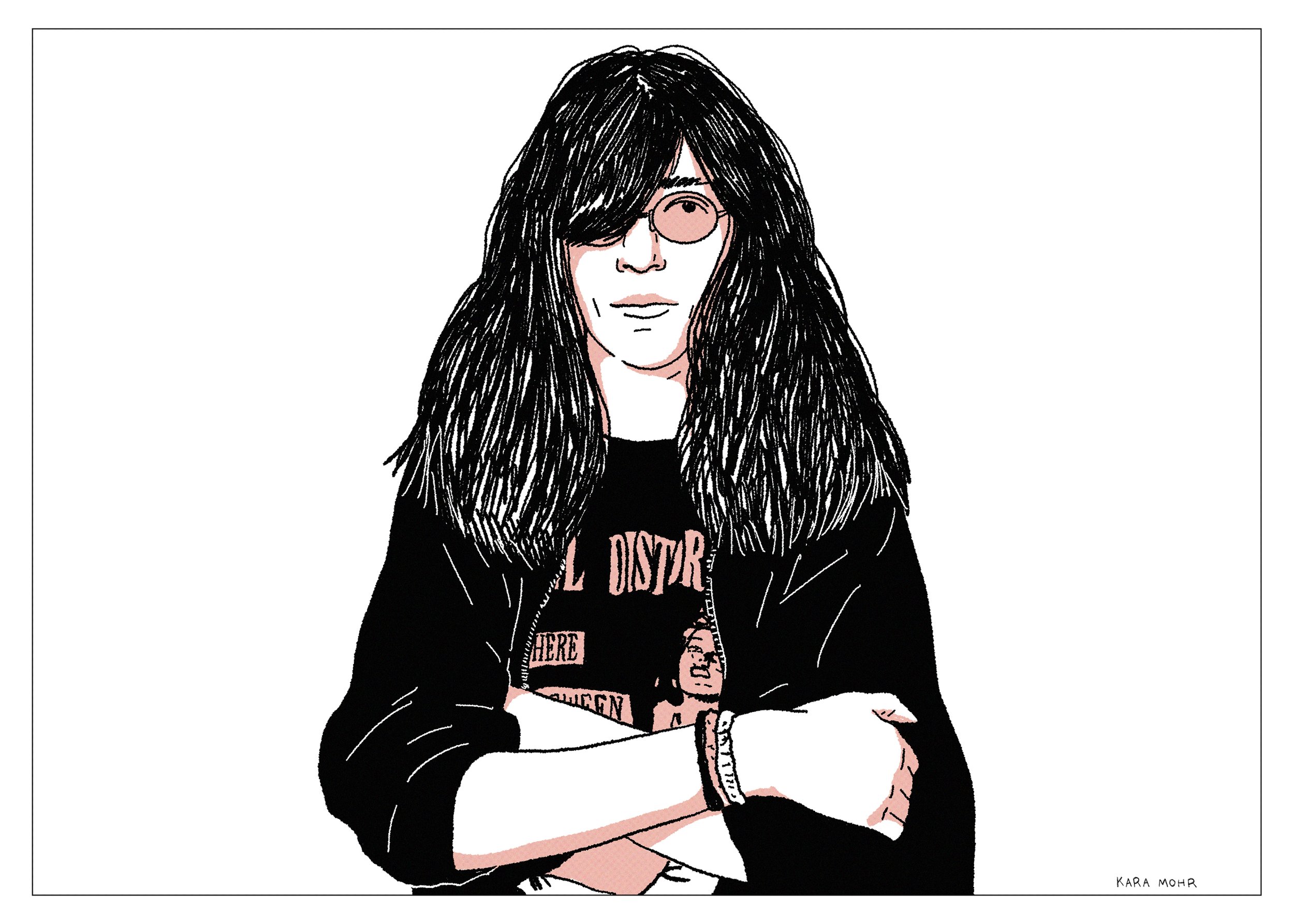
Joey Ramone “Don’t Worry About Me”
“Don’t Worry About Me” is almost exactly what you'd expect from a Joey Ramone on death's doorstep solo album. Which is to say it’s alternately frightened, bored, unfinished, funny, maudlin and brilliant. Joey croons, bleats and tawks his way through eleven tracks, all (but one) of which clock in under four minutes, but none of which are under two. The (by Ramones’ standards) mid-tempo nature of “Dont Worry About Me” — the seeming lack of rush — suggests a pace afforded by age, poor health and, most of all, no Johnny Ramone. Johnny had zero time for bullshit. But, especially at the very end, Joey had all the time in the world for it.
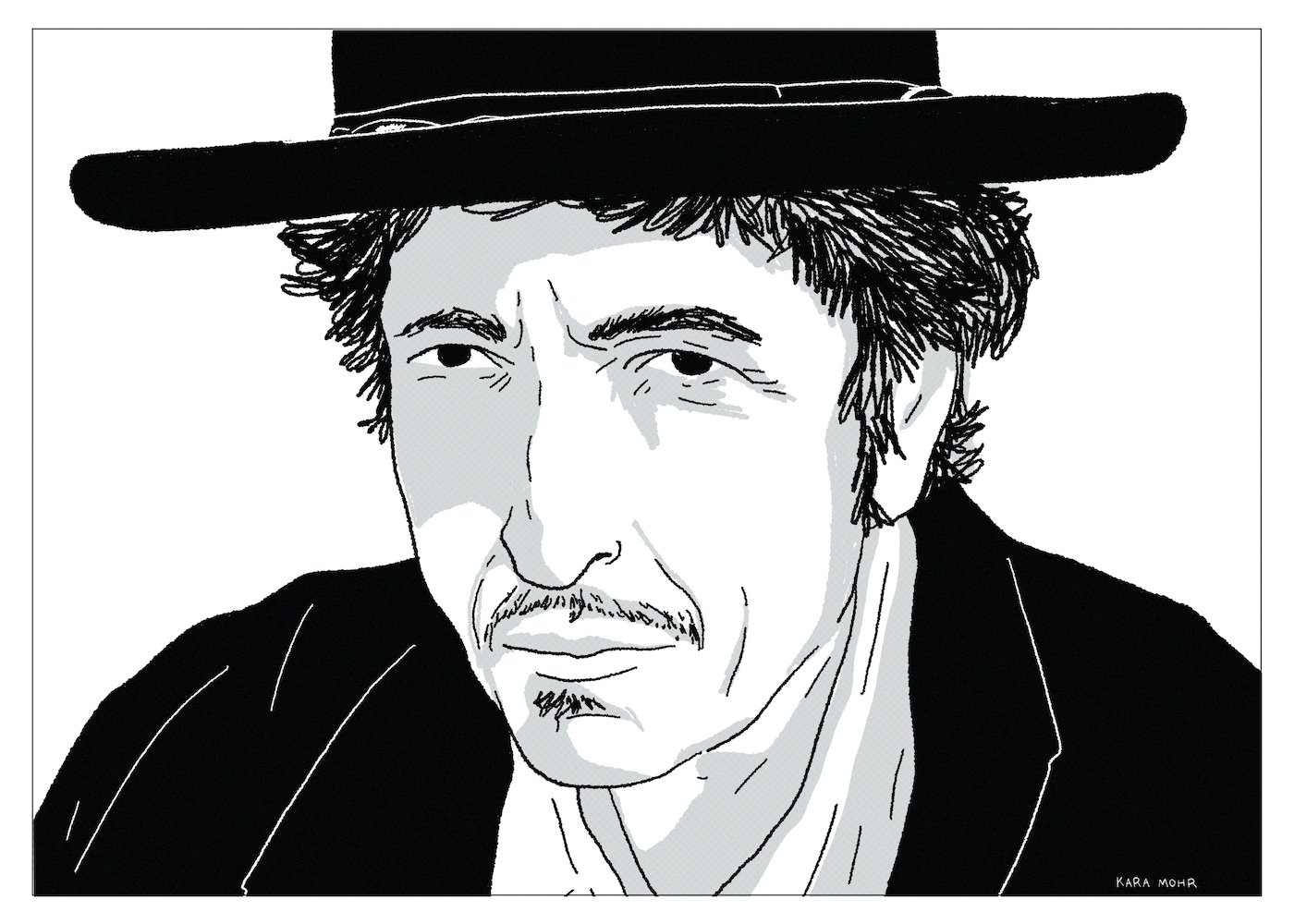
Bob Dylan “Together Through Life”
If Past Past Prime Van Morrison sounds like disgruntled Soul, and if Past Past Prime Leonard Cohen sounds like breathy Tao, Past Past Prime Dylan sounds more like Willie Nelson. It’s the sound of an artist working tirelessly, but with an air of retirement. The stakes are lower. There’s nothing to prove. And even if he had an agenda it would be swallowed up by his voice. That voice. The voice of relief and release. The voice of self-knowledge and self-acceptance. If you squint your ears, those post-”Time Out of Mind” records — from “Love and Theft” through “Tempest” — sort of blend together. The bands vary. Stories and settings change. But they share a common pace, range and — most of all — voice.
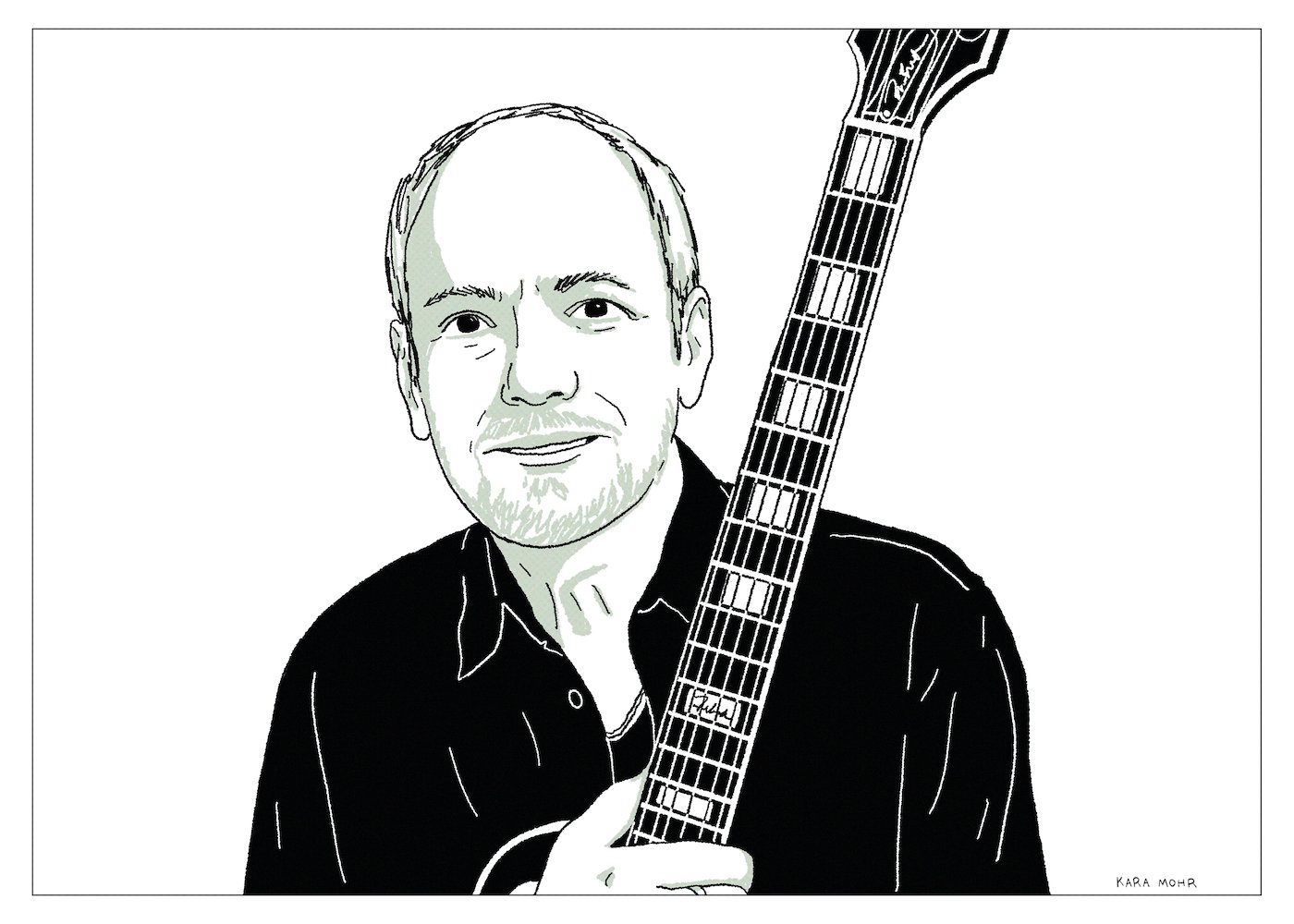
Peter Frampton “Now”
Frampton’s appeal was something like Xanax — it was a mild but neutered sensation. He possessed a rare capacity to elicit pleasure without the charge of Rock and Roll. Which is not to discount his talent so much as it is to explain why he was so positively vital in 1976 and so completely antithetical by 1977 — the year in which “Rumors” and “Never Mind the Bollocks” exploded with feelings. Amazingly, 1976 was also the year that the U.S. patent was awarded for Alprazolam — known commonly as Xanax. Yes — Xanax arrived at precisely the same time that Peter Frampton dominated airwaves and record store shelves. However, it did not take long for the effects to wear off and for everyone — including no doubt Frampton himself — to realize that we needed to actually feel the feelings.
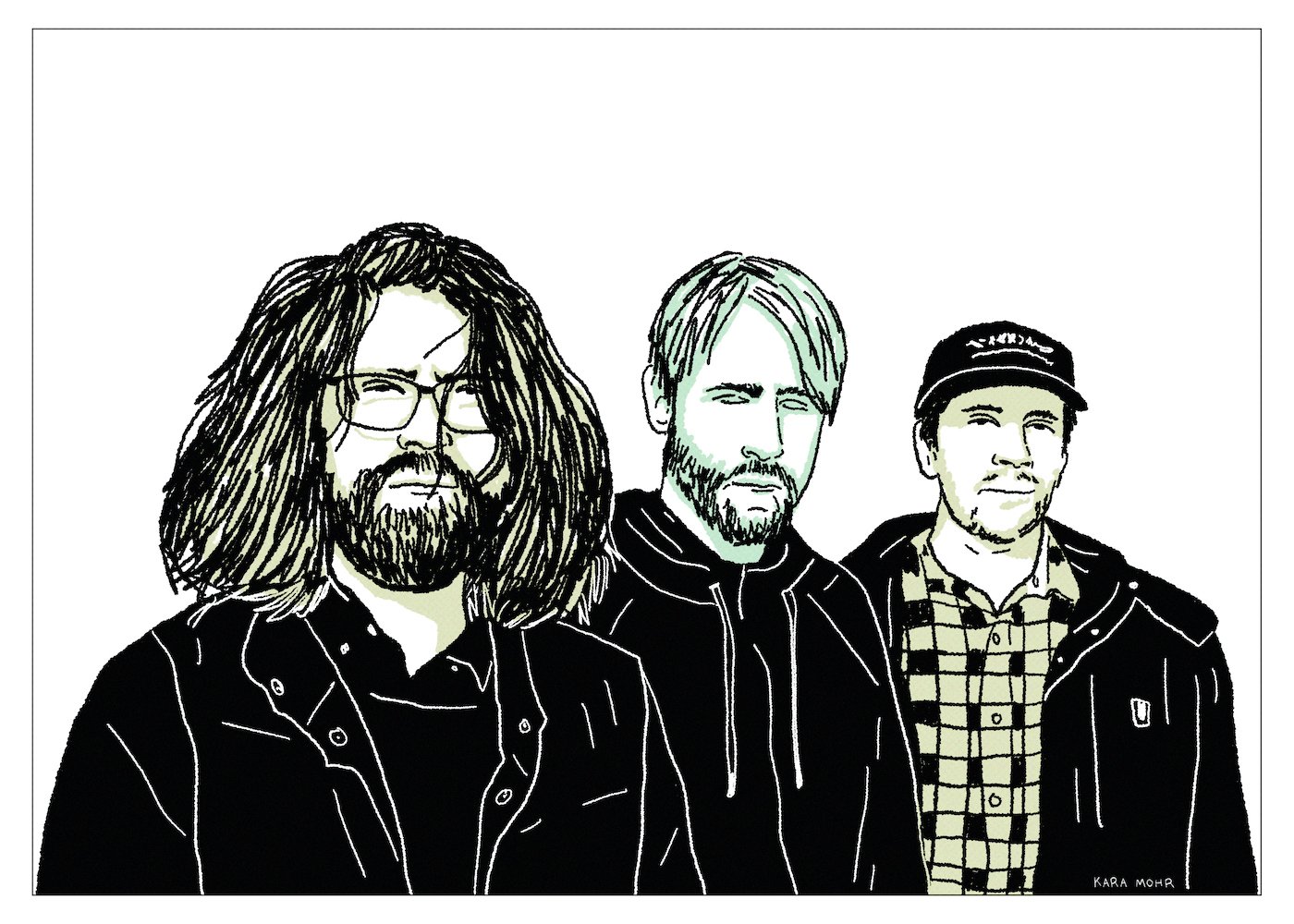
Sebadoh “Defend Yourself”
If Lou Reed was the first and the alpha, then Lou Barlow was the distant second and the beta Lo-Fi Lou. With Sebadoh, Barlow invented the kind of work in progress, kind of perfect as it is style that Guided by Voices and Olivia Tremor Control soon perfected. With Sentridoh, he invented an even quieter, decidedly unpunk alter ego that Iron & Wine and The Microphones cribbed notes from. And before all that, of course, was Dinosaur Jr., where Barlow’s Cardigan Cat Guy guise debuted. Yes — before Kurt Unplugged, before Elliott at The Oscars, and way before Taylor’s Tortured Poets Department — Lou Barlow was whispering the way.
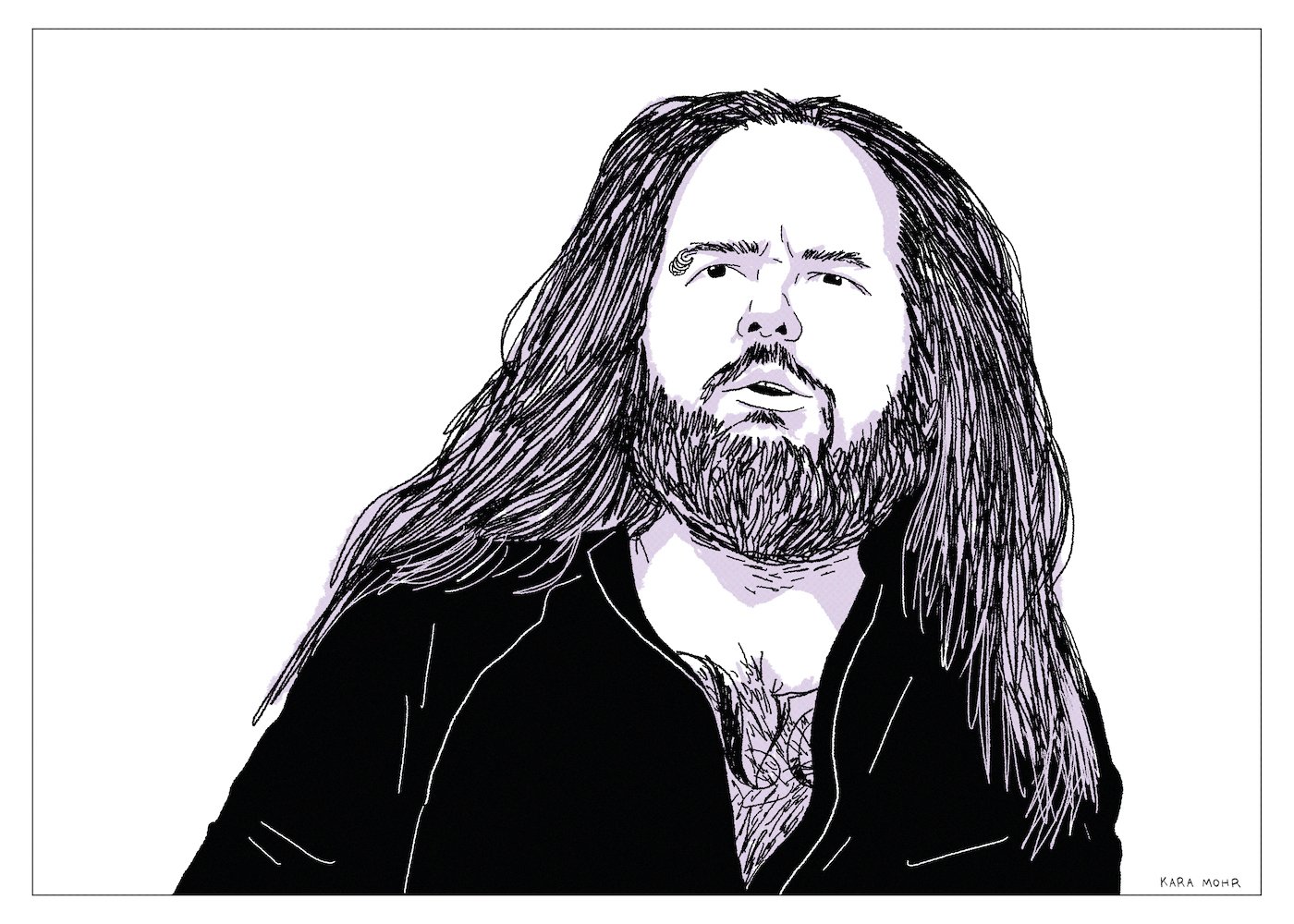
Jonathan Davis “Black Labyrinth”
The Jonathan Davis who released “Black Labyrinth” looked remarkably similar to the one who’d conquered the world on “Follow the Leader.” Same dreads. Same black glasses. Same eyebrow ring. Same scraggly beard. But in 2018 the almost forty-seven year old was an elder statesman, reclaimed by multiple generations as a pioneer and a survivor. On the surface, he was the exact same guy he’d always been. But inside he was a completely different man. And according to the press that accompanied his solo debut, Davis was the completely different sort of man who was interested in the history, politics and music of the Middle East. Which meant that “Black Labyrinth” necessarily included sitar, duduk, tablas and (double) violin. Which meant that I was more than a little reluctant to check it out. Which meant that—just as I’d done a quarter century earlier—I was steeling myself to dislike something I’d not yet heard.
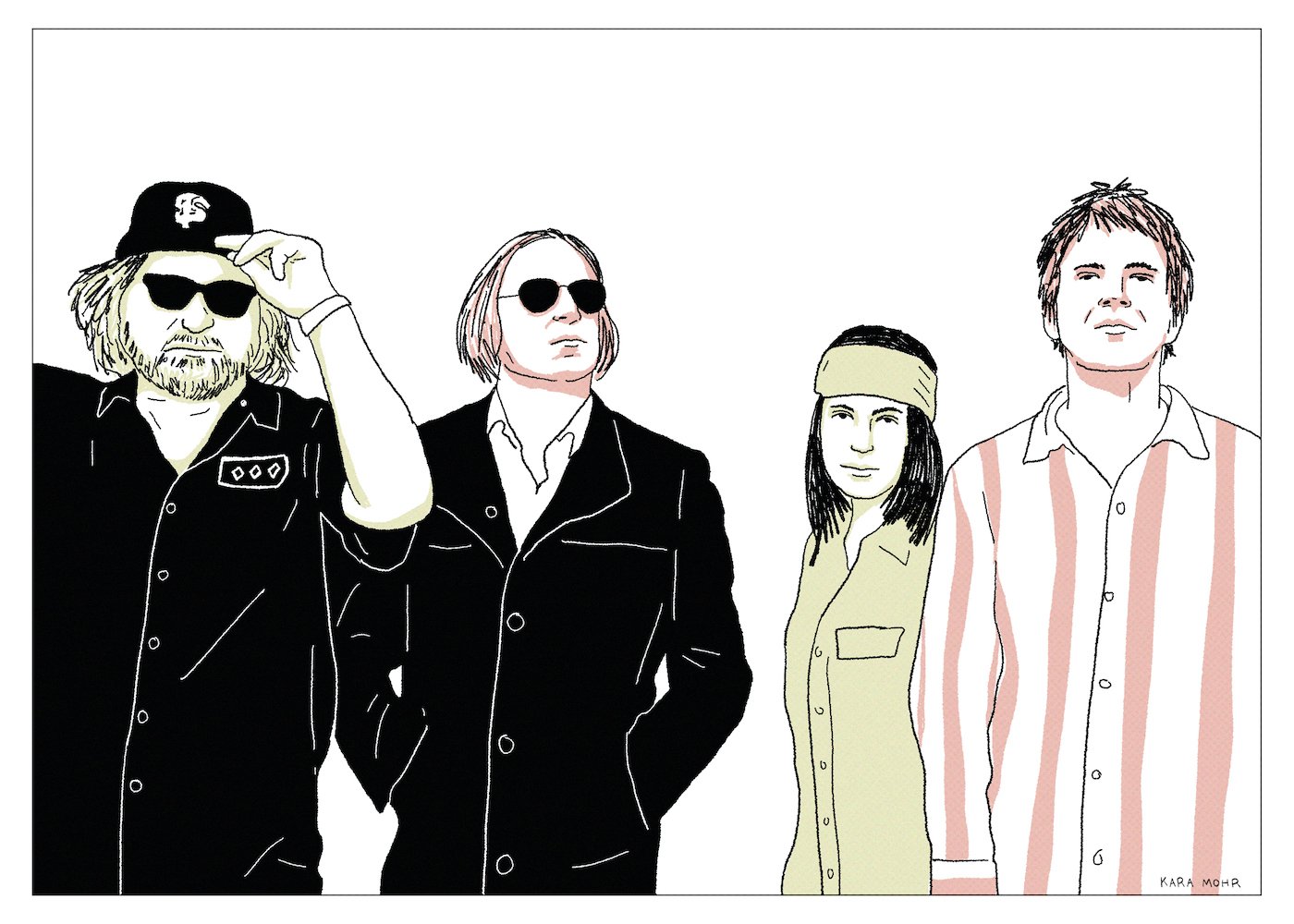
The Baseball Project “Volume 1: Frozen Ropes and Dying Quails”
While they aren’t Hall of Famers, Steve Wynn and Scott McCaughey are the subjects of indie fascination and the stars of The Baseball Project. On “Frozen Ropes and Dying Quails,” Wynn has seven writing credits to McCaughey’s six. Meanwhile, the actual Hall of Famer—Peter Buck —operates as a role player and drummer Linda Pitmon calls the pitches from behind the plate. In The Baseball Project, the frontmen are actually journeymen. Which, I think, is a big reason why the band works—because they are a team. Everyone is working in service of the same goal. And it’s a very specific goal—to make always witty, occasionally poignant songs about baseball’s great history. They’re not aiming for hits, much less home runs—they just want to play ball.
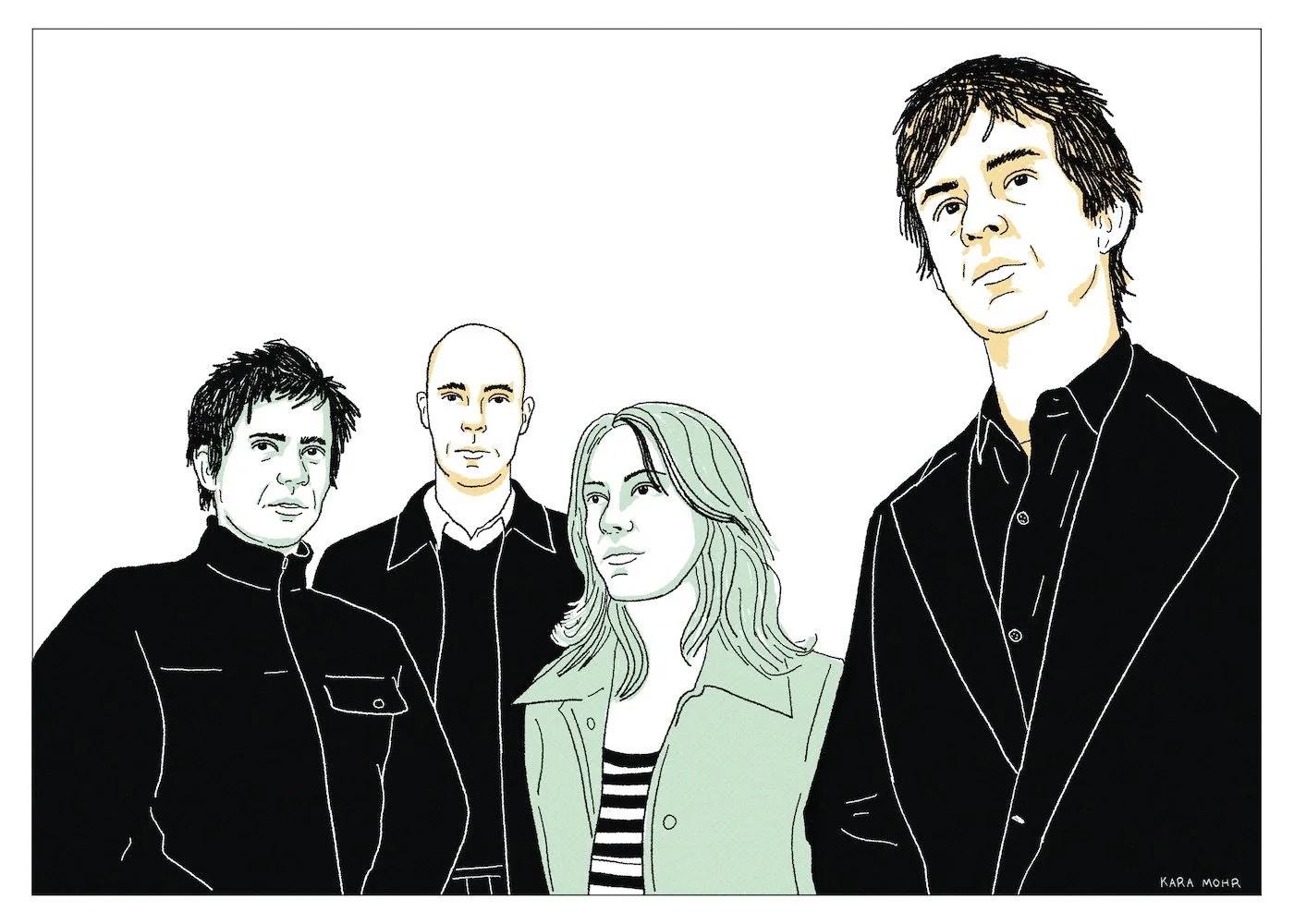
Luna “Rendezvous”
Just a decade earlier with Galaxie 500, Dean Wareham realized something profound and profoundly obvious—it’s hard to be in a band with a couple. Back then, he was the frontman who was also the third wheel. But in 2004, with Luna, he was the frontman and one half of the couple. Which is why “Rendezvous,” Luna’s seventh studio album, was meant to be their last album. Recorded during their farewell tour, “Tell Me Do You Miss Me,” is a feature length documentary about life on the road for a well known, well loved, but ultimately not known or loved enough indie band. There’s a lot of pleasure. And there’s even more pain. On the surface, it’s the story of a band breaking up because they just can’t make a living. But you didn’t have to scratch too hard to uncover the other truth—the story of a band breaking up because their lead singer and bassist had fallen in love.
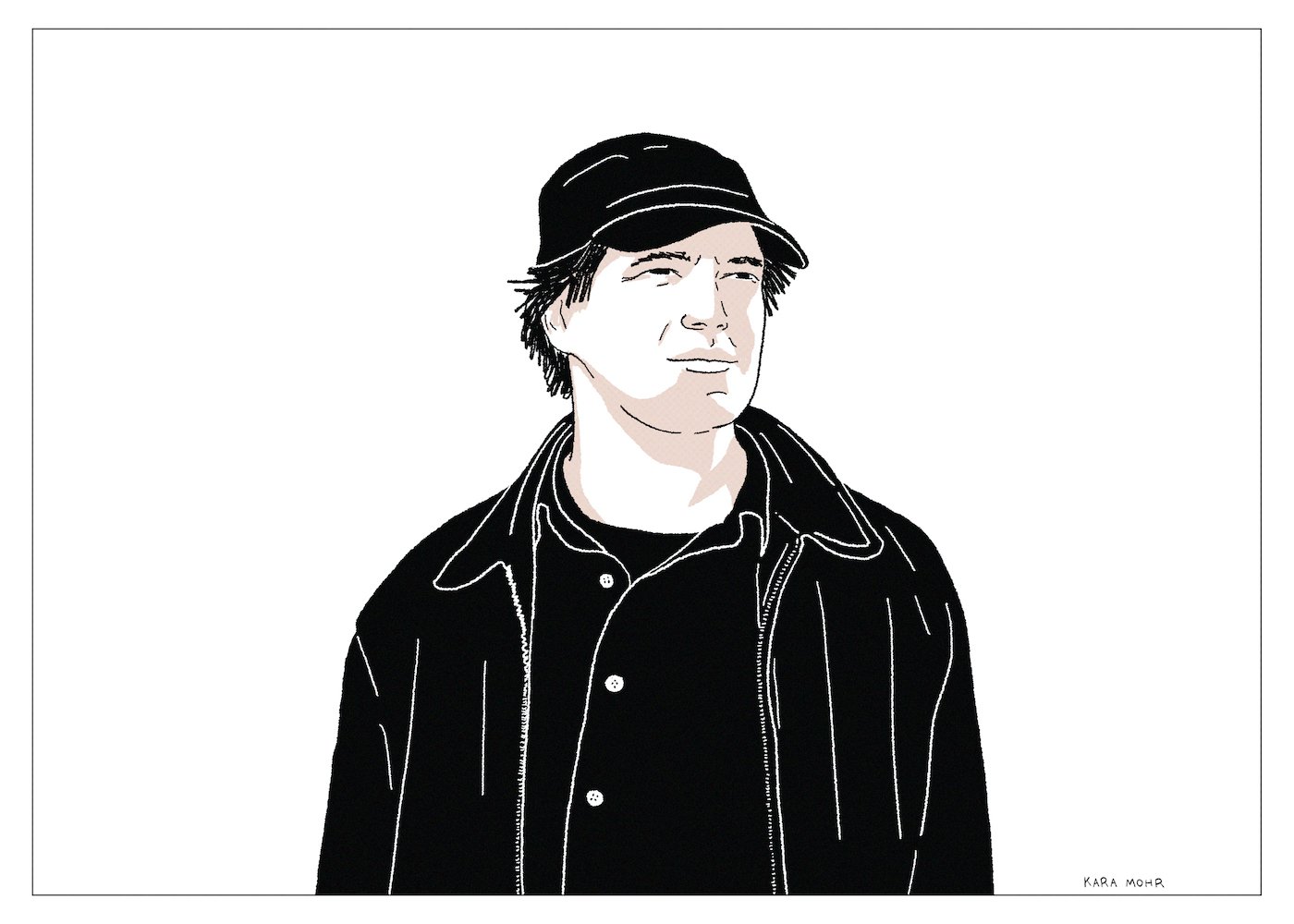
Richard Lloyd “The Radiant Monkey”
Following their unexpected reunion in 1992, Richard Lloyd and Tom Verlaine maintained a polite working relationship born from financial necessity and creative compatibility. The fallout from the first Television breakup had cost Lloyd a good deal of his commercial prime. The sequel, meanwhile, was a long, sputtering, part time concern. Lloyd made a small splash in 1991 for his appearance on Matthew Sweet’s “Girlfriend.” In 2001 he quietly released his first album in more than a decade. But, by 2007, he’d had enough. He’d had enough of waiting to make another Television record. He’d had enough of Tom being Tom. And so Lloyd finally resolved that—no matter how much he admired Tom Verlaine as an artist or even as a friend—he did not want him as a boss any more. Thirty-four years after he first joined the band and thirty-two years after he first quit the band and twenty-nine years after Verlaine broke up the band, Richard Lloyd quit Television and released “The Radiant Monkey,” his fifth solo album.
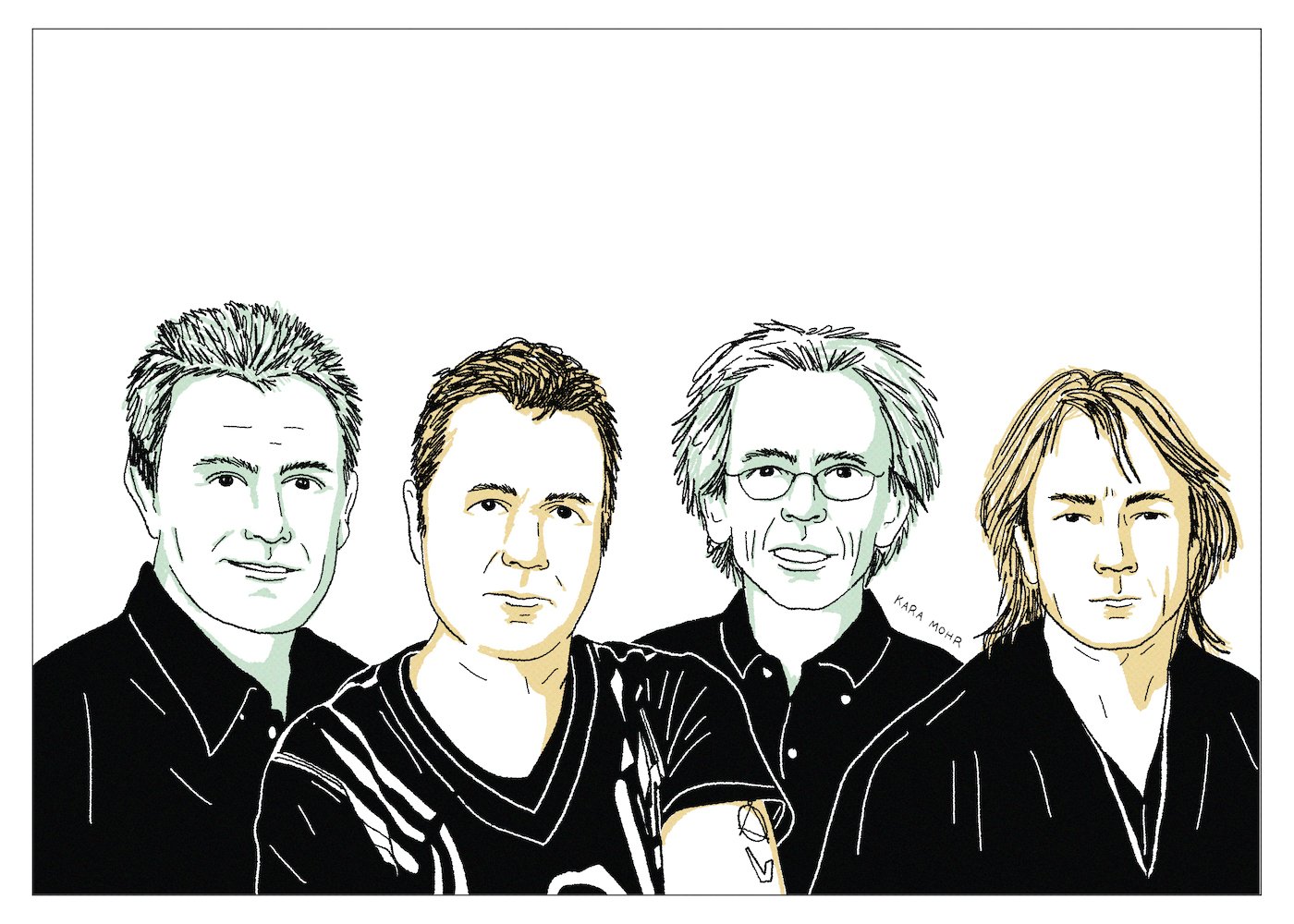
Asia “Phoenix”
If a computer—even a very old one—was tasked with naming an album made by the original four members of Asia who were reuniting for the first time in two decades, I am certain it would land on “Phoenix.” The metaphor of that ancient, immortal, mythological bird rising up again is simply too good to pass up on. “Phoenix” speaks to the passage of time, fire, beauty, erudition and regeneration. It is, in a single word, quite literally the perfect title for Asia’s comeback album—as ridiculous as it is accurate.
